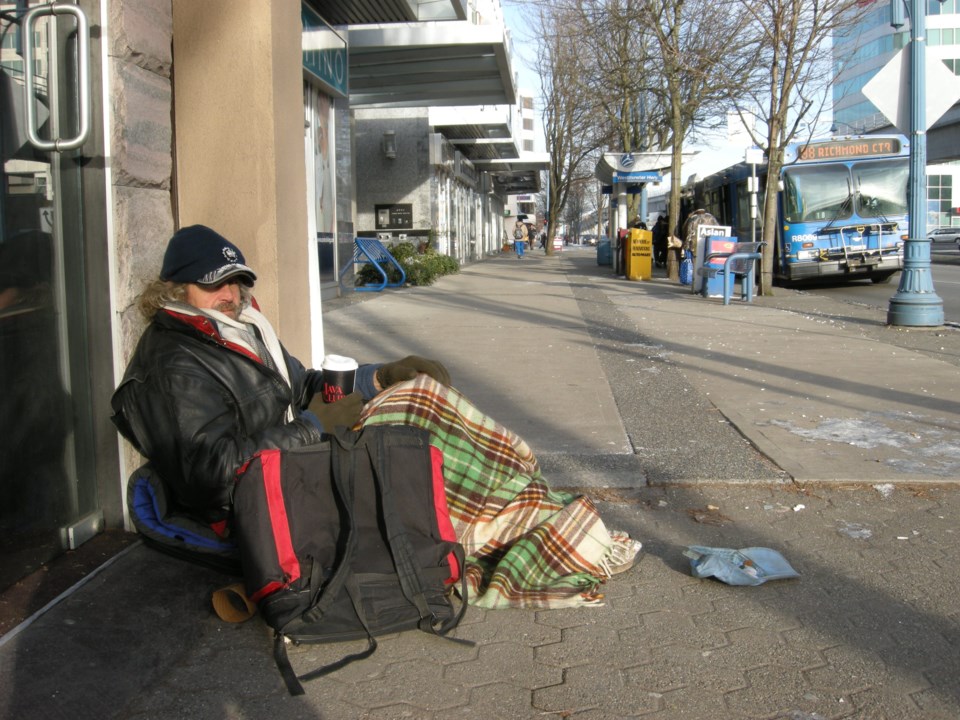The provincial government has declared Oct. 13 to 19 Homeless Action Week to raise awareness and to recognize the efforts of organizations and advocates working to help those experiencing homelessness.
“Homelessness is a complex issue causing deep and lasting impacts on the lives of too many people in B.C. We see it every day on our streets and in encampments that pop up in communities,” said Shane Simpson, minister of social development and poverty reduction, and Selina Robinson, minister of municipal affairs and housing in a joint press release this morning.
“It can also be invisible — people sleeping on couches or staying in harmful relationships for shelter. It is personal stories of hardship and struggle, but it is also the result of system failures, impossibly high rents, barriers to support and poverty.”
Between June 2018 and April 2019, at least 193 people experienced homelessness in Richmond, according to recent data. Some low-income households were also at risk of eviction.
At least 18 youth experienced homelessness in Richmond last year, according to Metro Vancouver’s 2018 youth homeless count. And the regional body’s 2017 homeless count estimated 70 homeless individuals in Richmond, an increase of 84 per cent from the 2014 count.
There are a number of organizations in Richmond that work to combat homelessness: Storeys, a new 36-bed emergency shelter, the homeless-serving and outreach programs at St. Albans and the new 40-unit temporary modular housing.
And in September, Richmond City Council passed the city’s first homeless strategy in 17 years, which aims to tackle homelessness through five strategic directions: prevention, support for homeless individuals, pathways out of homelessness, collaboration and capacity-building among community partners and to communicate, research and monitor homelessness.
“We hope to increase awareness and empathy, and encourage more people to get involved with local organizations and solutions,” said Simpson and Robinson in the joint release.
“As a government, we’re committed to building on the successes we have seen responding to homelessness with proactive and preventative initiatives to stop homelessness before it happens.”



